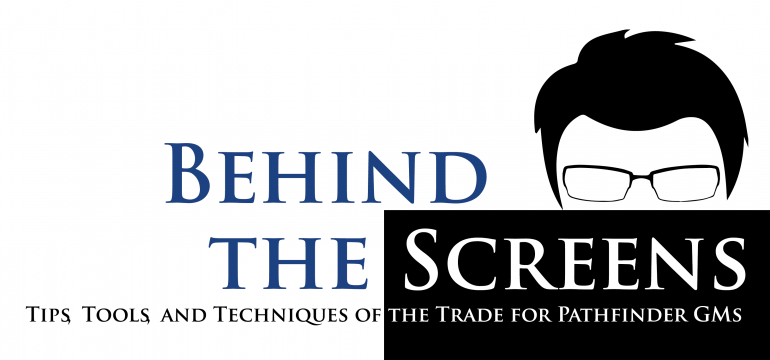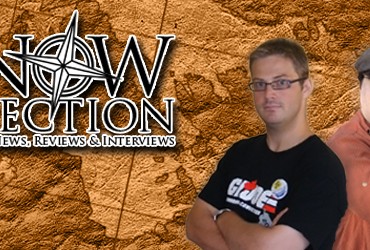There have been a number of shocking stories coming to light featuring RPG industry giants – both individuals and entities – in the last couple weeks. Allegations of inappropriate behavior, coercive silences, and inadequate responses have arisen coinciding with with the massive #MeToo campaign across social media. These stories are still developing. But this isn’t a new phenomenon by any means. The patterns are the same. A victim comes forward with an experience that should never have come to pass. Instead of concern and support they face recriminations of dishonesty, questioned motives, and hostility. Perhaps worse is the tide of indifference from a large portion of the community who would rather not engage in someone else’s drama.
But our community has been plagued by bad actors since its very inception, as a reflection of the inequalities in our society. Over a year ago, we had a similar occurrence wherein a brave woman came forward with her experiences within the gaming community. The shocking part of those stories were that those experiences weren’t outstanding by any means. Those experiences were the norm for most women in gaming. I wrote an article in response then, in part to spread awareness, in part to lend support. It pains me to say that little has changed in the months since. And I’m ashamed to say that, the powerful and privileged of our community, haven’t done enough to protect the vulnerable and the marginalized.
Yes, there have been crusaders and champions in the cause. Whistleblowers and activists who fearlessly call out the bad actors they find. But they are too few. Always, it seems, there are those who would defend the bad actors among us. Those that shout down accusations, or else deny them entirely. Those who would point to past glories as if they some how made up for present atrocities. The struggle is real.
But more common by far than those of either group are those who are aware of the problem and do nothing. Those who, rightly, believe that gaming should be a safe and inclusive space for everyone, but yet stay silent when a victim comes forward. Who do nothing when confronted with hate speech. Who turn a blind eye to the harassment and abuse that might be happening within their local communities. Those who call themselves allies yet do little – if anything at all – to help the vulnerable around them feel safe.
I’ve begun to think of these half-hearted attempts at activism as the real-world version of Aid Another.
In Pathfinder, Aid Another occupies an odd little corner of design space. It’s a Standard Action that allows one character help an ally with a specific task. Mechanically, this amounts to the aiding player making a trivial dice roll and adding a small bonus to their ally’s next attempt at aforementioned task. From the perspective of game-theory, the Aid Another action represents an opportunity cost for the aiding player. A small and temporary bonus for an ally in exchange for a once-per-round resource that might otherwise have been spent doing something else.
Realistically every mechanical choice made in an RPG, from character options to combat, is an opportunity cost. But Aid Another is an apt metaphor because it’s an action that costs little and risks nothing. All for a minor effect that lasts a fleeting moment. It’s fine if your fellow party member needs a leg up every now and then. You can Aid Another to guarantee a success here or there. But if all you’re doing is Aid Another, that’s not very heroic is it? And just as a RPG towns suffer from the apathy of fair-weather heroes or impotent NPCs, this problem we face suffers from the impermanence of transient allies.
Being an ally of vulnerable or marginalized individuals isn’t a feather in your cap, or a badge on your chest, or a pin on your messenger bag. It’s more than a Facebook filter, or a bumper sticker, or a flag, or a ribbon. It’s not a status or a title. It’s a mission. It’s a goal. It’s an ongoing struggle. You don’t just become an ally by agreeing with the idea of equality or by sitting passively by while injustices occur within your community.
- Allies listen. When a person comes forward with a story of having been harassed. Listen to them. They are telling you about a traumatic experience. Believe them. Withhold from judgement or dismissal. If you are learning about this person’s story, they are taking a risk telling you. Acknowledge that bravery. Listen.
- Allies learn. It can be hard for a person who isn’t part of a vulnerable or marginalized group to understand what it’s like. To be unwelcome. To be outnumbered. To be in a place where your worldview isn’t the majority. Take the opportunity to step out of your comfort zone. Enter a space where you aren’t the majority. Be mindful of what that feels like.
- Allies fight. Part of what being a good ally is to confront bad behavior when you see it. The nature of that confrontation and your response to it is up to your judgement of the situation. But it can be as simple as calling out a peer for using a slur. Speaking up when a friend objectifies a woman at the table. If you’re a member of the majority, you have a particular power that comes with the position to criticize your peers for their poor behavior. Use that power for good. And call out poor behavior when you see it.
- Allies grow. Perhaps most important of all. Realize that you’re not a perfect ally. Because you’re human. And humans are fallible. You will make mistakes. I know I have. But being a good ally means that you accept your failings and grow from them. If someone calls you out for a misstep or error, resist the urge to immediately go on the defensive. Accept what they’re saying. Reflect on it. Have a conversation on how you might improve. Grow.
Harassment and abuse within our community is a systematic problem that stems from the biases in our society. That’s not going to be fixed overnight. But the first steps towards addressing it can happen here and now. It starts with people being more than what they are. It starts with people doing more than they have been.
It starts with people learning that there’s more to do in this fight than simply Aid Another.





